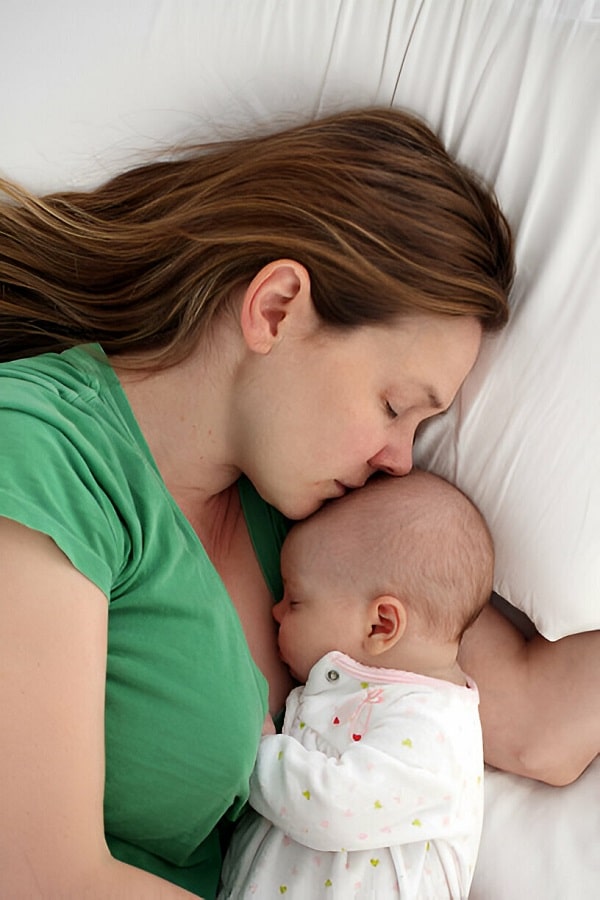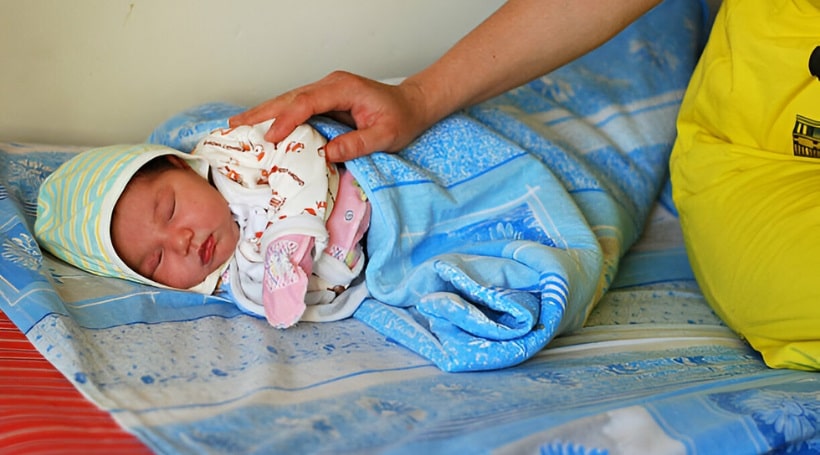Last Updated on January 1, 2025
Caring for a newborn is a joyous yet challenging experience, often leaving parents feeling sleep-deprived and overwhelmed. However, prioritizing sleep is crucial for both parents’ and babies’ well-being. By implementing strategic approaches, exhausted parents can find a balance between caring for their little ones and getting the rest they need.

The Importance of Sleep for New Parents
Lack of sleep can significantly impact new parents’ physical and mental health, leading to fatigue, irritability, and difficulty concentrating. Insufficient sleep is also linked to increased symptoms of postpartum depression and anxiety. Ensuring parents get adequate rest is not only beneficial for their well-being but also allows them to provide the best possible care for their newborns.
Newborn Sleep Patterns
Newborns have unique sleep cycles that differ from adults. They sleep for 16-18 hours per day, typically in short bursts of 2-4 hours. This irregular sleep pattern can be challenging for parents to adjust to, but understanding the normal sleep needs of infants can help manage expectations and reduce stress.
Strategies for Balancing Sleep and Newborn Care
- Sleep when your baby sleeps: Take advantage of your baby’s nap times during the day to catch up on your sleep. Avoid the temptation to complete chores or run errands during these precious moments.
- Create a sleep-friendly environment: Ensure your sleeping area is cool, dark, and quiet to promote better sleep quality. Use white noise to block disruptive sounds and invest in a comfortable mattress and bedding.
- Take turns with your partner: Divide nighttime duties with your partner, allowing each of you to sleep in shifts. One parent can care for the baby while the other rests, and then switch roles.
- Enlist help from family and friends: Accept assistance from loved ones, such as help with chores, meals, or baby care. Having an extra set of hands can provide much-needed relief and allow you to catch up on sleep.
- Adjust your expectations: Understand that your home may not be as tidy as it once was, and prioritize self-care over perfection. Avoid comparing yourself to other parents and be patient with yourself during this challenging time.
- Practice good sleep hygiene: Avoid consuming caffeine in the evening, limit screen time before bed, and establish a relaxing bedtime routine. These habits can help you fall asleep faster and improve the quality of your rest.
- Consider bedsharing with caution: While bedsharing is a controversial topic, some studies suggest it may have small beneficial effects on development. However, it’s crucial to follow safe bed-sharing guidelines to minimize risks.
By implementing these strategies and seeking support when needed, exhausted parents can navigate the challenges of newborn care while prioritizing their sleep and well-being.
FAQs
How much sleep do newborns need?
Newborns typically sleep 16-18 hours per day, often in short bursts of 2-4 hours.
Bedsharing can be safe when done correctly, but it’s essential to follow safe sleep guidelines to minimize risks. Consult with your pediatrician for personalized advice.
How can I help my baby sleep better?
Establishing a consistent bedtime routine, keeping the room cool and dark, and using white noise can help promote better sleep for your baby.
What are the signs of postpartum depression?
Symptoms of postpartum depression may include persistent sadness, anxiety, irritability, and difficulty bonding with your baby. If you experience these symptoms, seek help from a healthcare professional.
How can I stay awake while feeding my baby at night?
Try to stay hydrated, snack on healthy foods, and avoid screens while feeding your baby at night. If you feel extremely fatigued, consider asking your partner or a trusted friend or family member to take over a feeding.
References
1. Development and evaluation of ‘Sleep, Baby & You’—An approach…
2. The science of healthy baby sleep – BBC
3. Sleep Solutions for Exhausted New Parents: Strategies for Catching…
4. Coping with Sleep Deprivation: Strategies for New Parents

